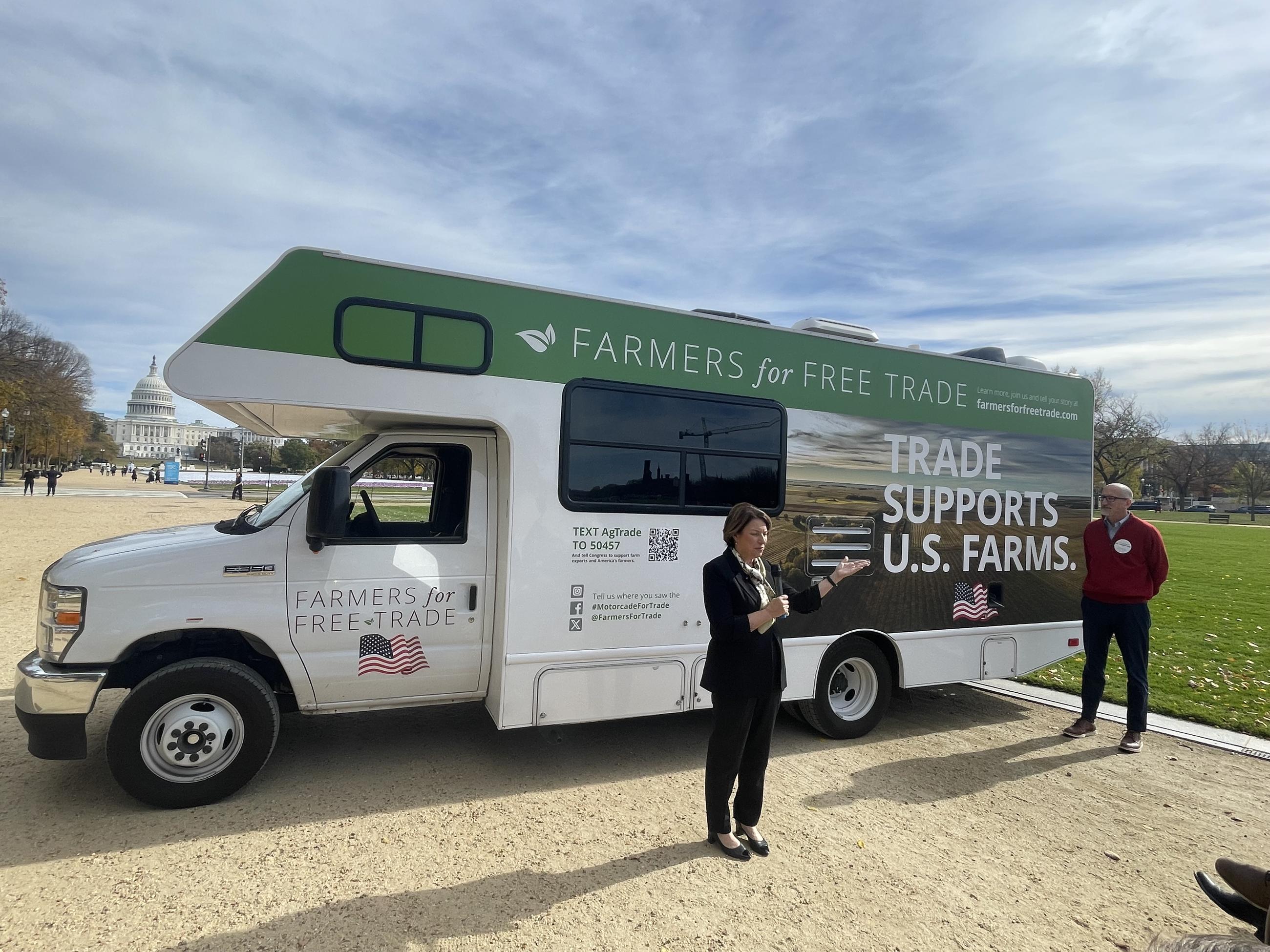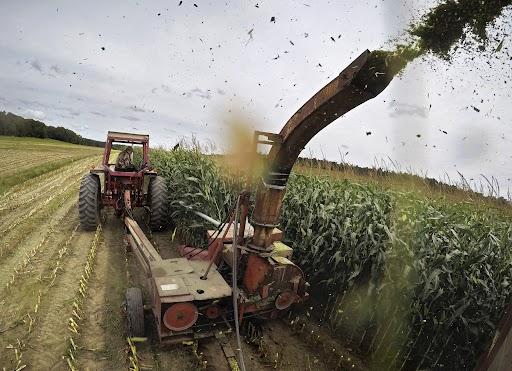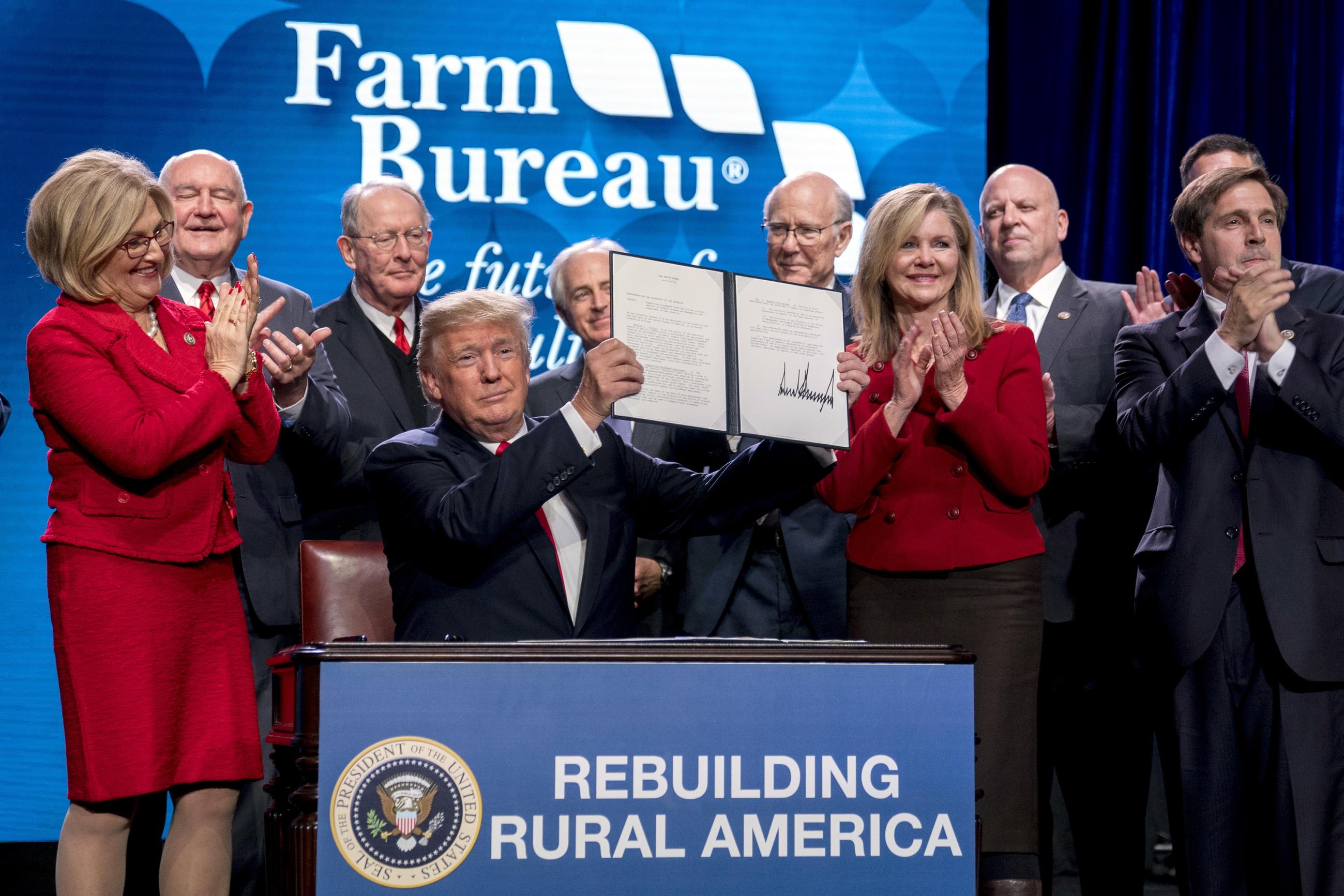Rebeckah Adcock, a key adviser to Agriculture Secretary Sonny Perdue during President Trump’s first term, said back in February that the second Trump administration would be “more White House-policy centric.”
Department officials “are going to have to go to bat with [the Office of Management and Budget] and the White House,” Adcock, now the vice president for U.S. government relations at the International Fresh Produce Association, told the Crop Insurance Industry Annual Convention.
Ten months later, Adcock’s observation seems like an understatement in terms of food, agriculture, and trade policy. In the last week alone, President Trump’s statements on food stamps, soybeans, Argentine beef, and trade have mattered much more than any departmental policy. But Trump’s statements have also opened the window for criticism.
The most obvious example is food stamps, officially called the Supplemental Nutrition Assistance Program, which provide food-purchasing power for 42 million low-income people. During previous government shutdowns, the Agriculture Department distributed SNAP benefits from a contingency fund set up for emergencies. But this time the Trump administration insists USDA does not have the authority to do so because Congress has not passed a fiscal 2026 appropriation for SNAP.
States, municipalities, and anti-hunger groups sued the government to provide the benefits, and two federal judges agreed last week that USDA has the authority to continue paying the benefits—and must do so.
Trump administration lawyers could have appealed the decisions, but they didn’t after Trump wrote on Truth Social, “I do NOT want Americans to go hungry just because the Radical Democrats refuse to do the right thing and REOPEN THE GOVERNMENT. Therefore, I have instructed our lawyers to ask the Court to clarify how we can legally fund SNAP as soon as possible.”
The lawyers told the courts that USDA would comply with the rulings. But then on Tuesday, Trump seemed to change his mind, writing again on Truth Social that SNAP benefits “will be given only when the Radical Left Democrats open up government, which they can easily do, and not before!”
Why Trump changed his mind—or at least his tone—is unclear. White House press secretary Karoline Leavitt told reporters on Tuesday “the administration is fully complying with the court order.” She added, “The recipients of these SNAP benefits need to understand it’s going to take some time to receive this money, because the Democrats have forced the administration into a very untenable position.”
Trump’s statement gave Democrats on Capitol Hill an opportunity to rake both Trump and House Republicans over the coals. Sen. Amy Klobuchar, ranking member of the Senate Agriculture Committee, called Trump “a bully” who wants to “browbeat” people. Twenty House Democrats held a news conference criticizing their Republican colleagues for not standing up for their constituents on SNAP and for staying out of Washington for more than a month.
While the SNAP crisis was developing, Trump announced the Chinese had agreed to buy soybeans and the United States would buy more beef from Argentina to lower beef prices for American consumers. In the past, such announcements would have come from the U.S. trade representative or the Agriculture secretary.
The American Soybean Association said it is “cautiously optimistic,” but growers wonder whether the Chinese will really make the purchases. The National Cattlemen’s Beef Association was livid about the plummeting price of cattle futures.
Farm-state senators have traditionally taken a great interest in the position of chief agricultural negotiator. But when Julie Callahan, the civil servant Trump has nominated for the post, went to Capitol Hill last week for her confirmation hearing, members of the Senate Finance Committee peppered her with questions about Trump’s policies rather than her own skill set. Callahan declined to answer a question about whether Argentine imports will hurt American ranchers.
Trump continues to defend tariffs, even as the Supreme Court held a hearing Wednesday on a challenge to his broad-base tariff policies. But Farmers for Free Trade, a group that conducted a motorcade across 11 states this fall, came to Washington Tuesday to fight for the removal of tariffs it says destroy markets and raise input costs.
“The administration has lost sight of the harm it is doing,” said Brent Bible, an Indiana corn and soybean farmer.
Klobuchar showed up at their event on the Mall and said, “Tariffs are the ultimate issue facing our economy.”
From SNAP to trade, the Trump administration’s policies on food and agriculture come directly from the White House, usually via Truth Social posts from Trump himself. If voters decide the policies are amateurish or ineffective, there will be only one person to blame.
As José Andrés, the chef and founder of World Central Kitchen who famously refused to open a restaurant in the Trump Hotel, put it at a recent George Washington University Food and Agriculture Policy Summit, “We may have only one department—the Department of the White House.”








